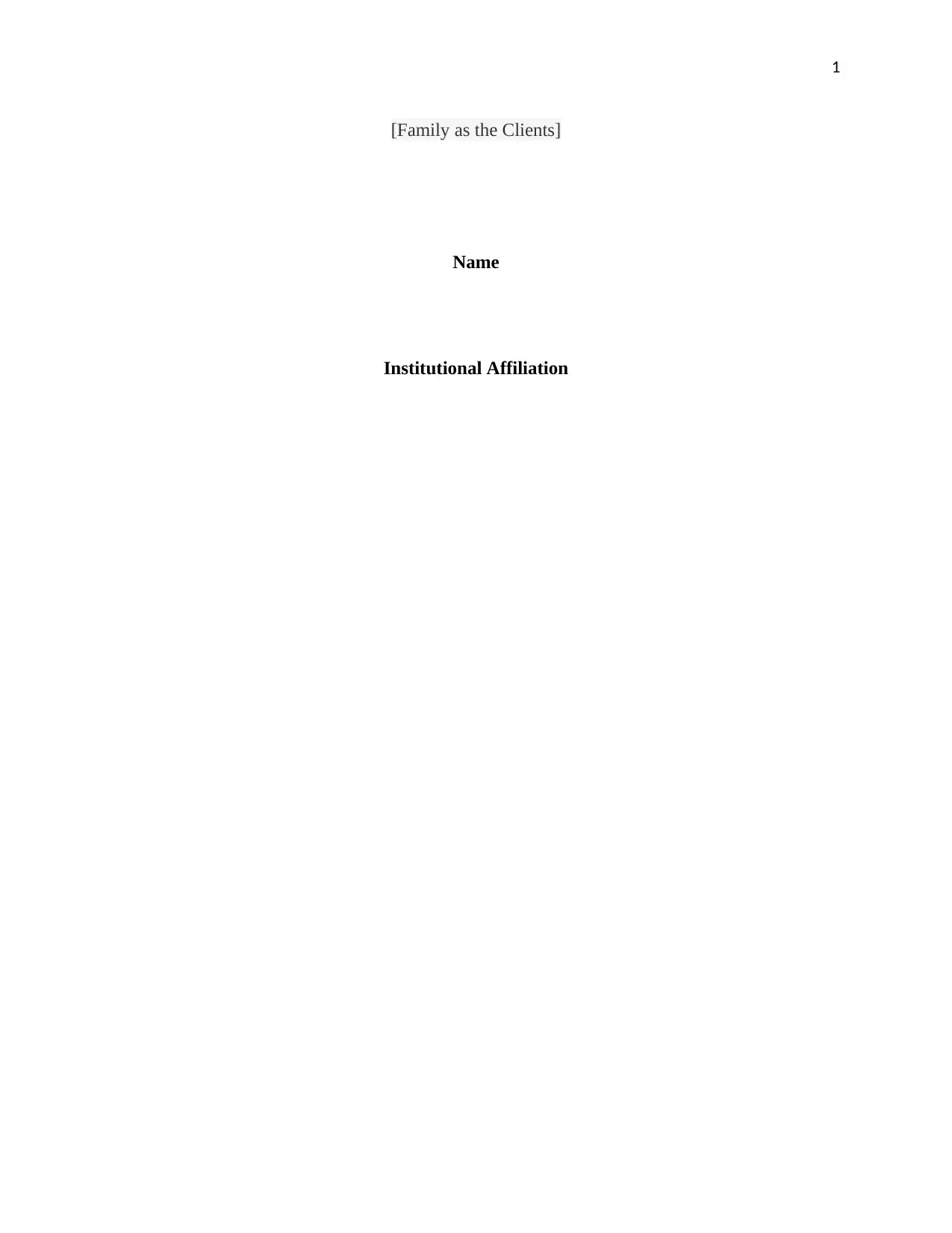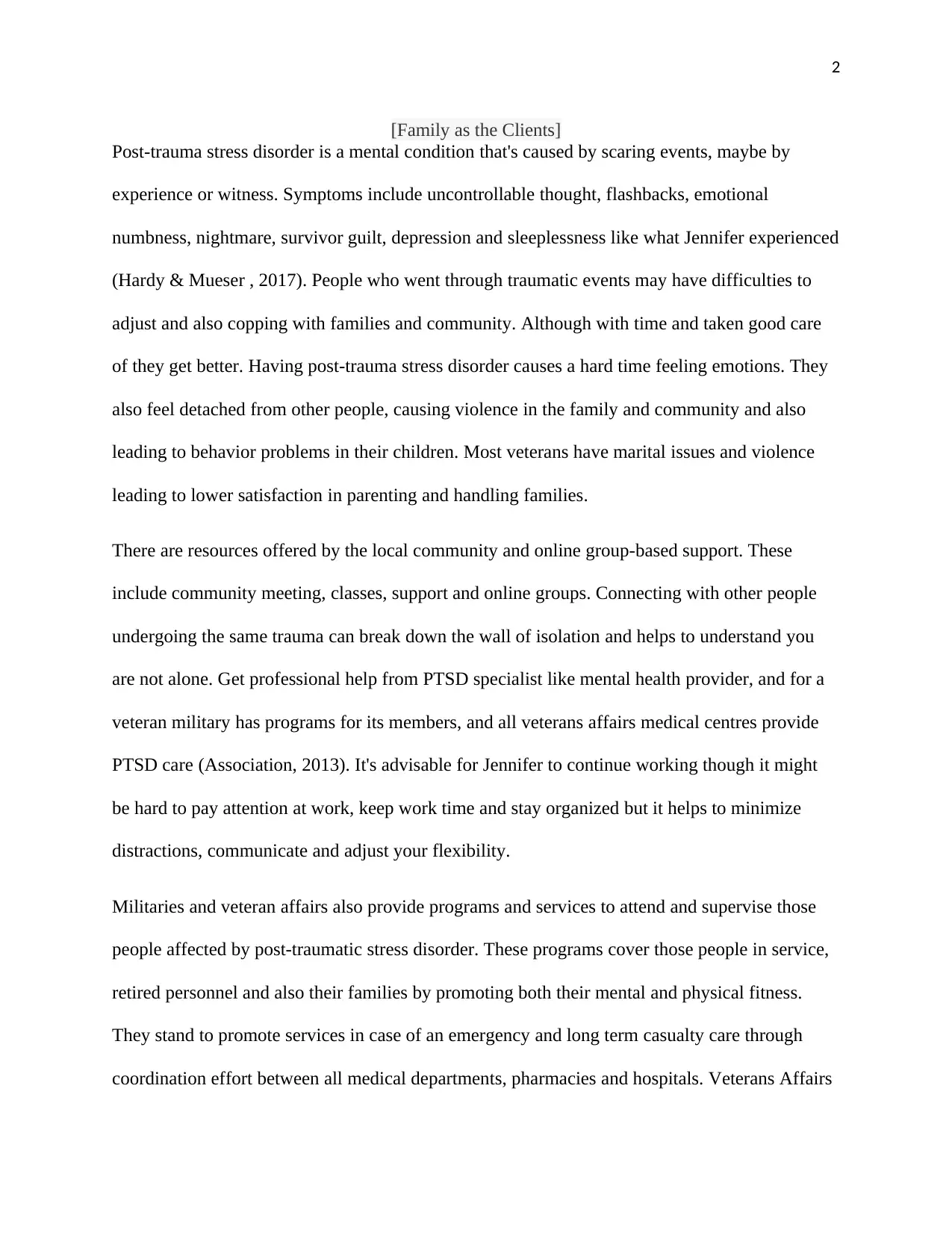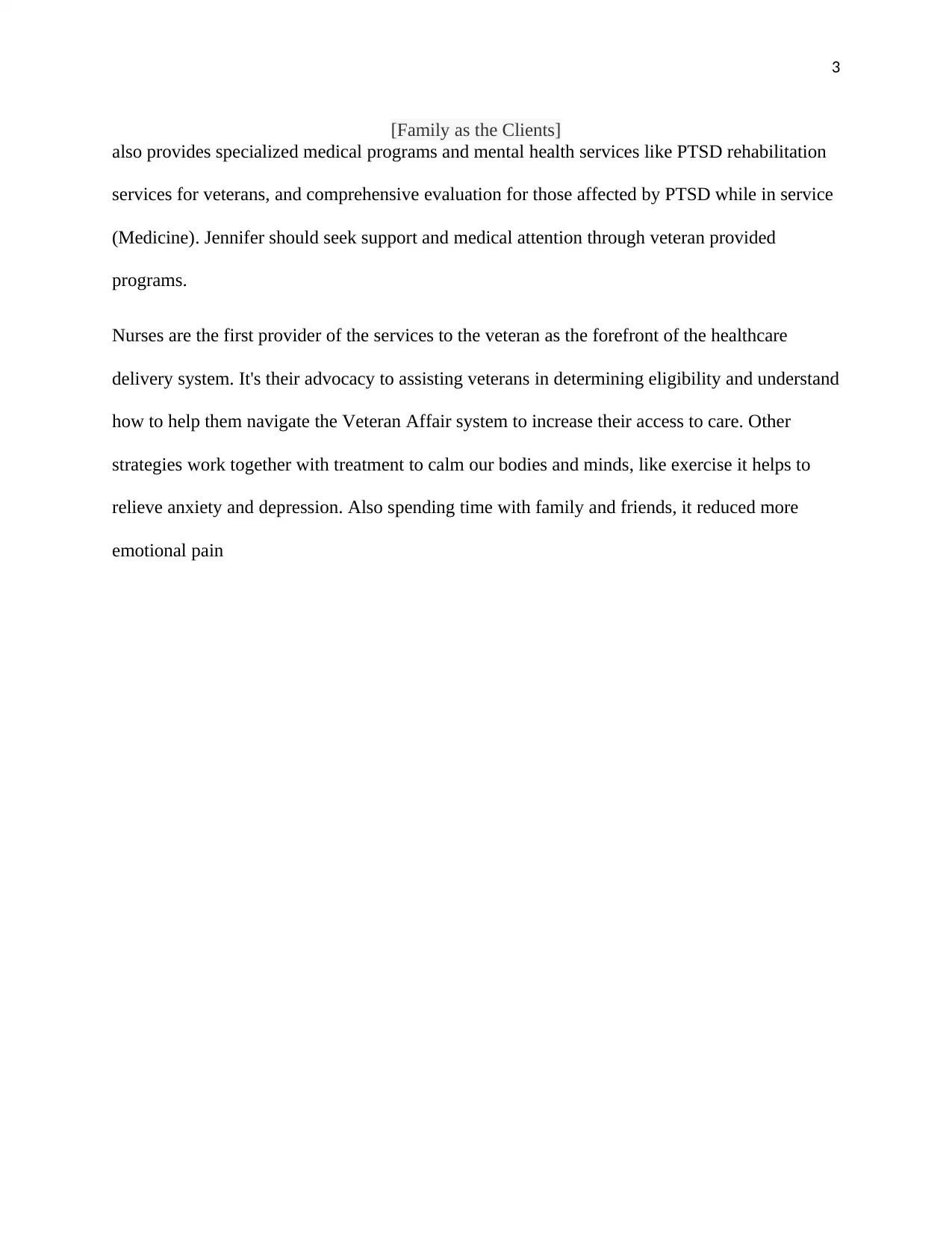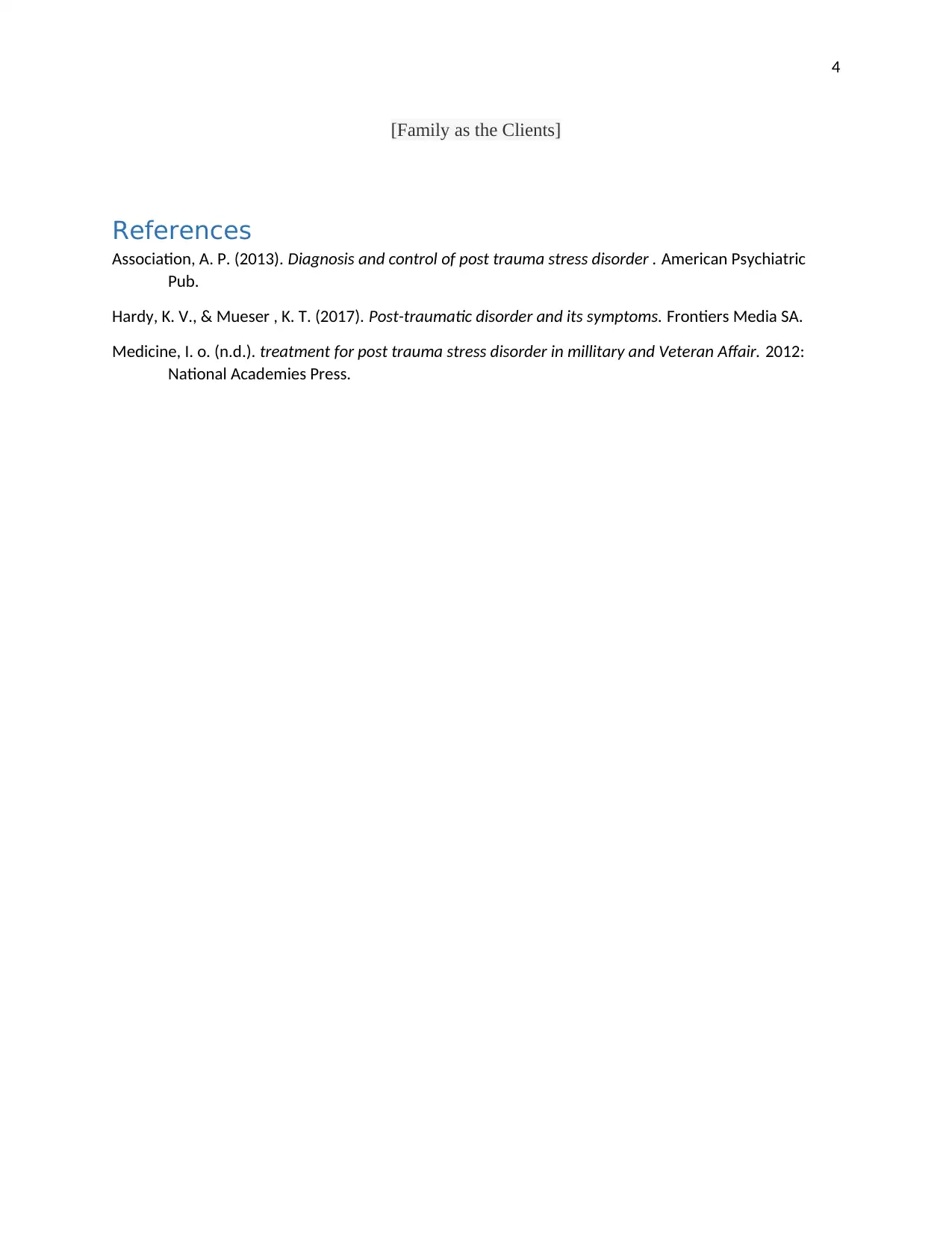Analyzing PTSD and Family Support Systems: Veteran Affairs Report
VerifiedAdded on 2022/10/02
|4
|541
|12
Report
AI Summary
This report examines the impact of Post-Traumatic Stress Disorder (PTSD) on families, focusing on the challenges faced by veterans and their loved ones. It highlights the symptoms of PTSD, such as emotional numbness and difficulties in relationships, and the importance of seeking professional help. The report emphasizes the role of Veteran Affairs (VA) in providing crucial support through programs, mental health services, and resources for veterans and their families. These programs include specialized medical care, PTSD rehabilitation, and support groups, promoting both mental and physical well-being. The report also stresses the importance of nurses in assisting veterans in accessing care and the value of additional strategies like exercise and family time to manage PTSD symptoms.
1 out of 4











![[object Object]](/_next/static/media/star-bottom.7253800d.svg)